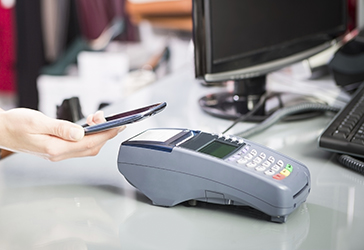
Even though anyone can be a victim of a personal loan scammer, some people are at more risk than others.
Advance loan scammers typically target those financially struggling as they are more desperate for cash and will ignore red flags like "guaranteed loan approval."
In addition, those with poor credit and urgently needing money may fall for scammer companies that offer loans or credit regardless of creditworthiness.
What Is an Advance-Fee Loan Scam?
An advance-fee loan scam is a personal loan scam that targets consumers with a poor credit history while promising easy access to loans that never materialize.
Scammers can post ads or make calls offering attractive loans to lure in people with bad credit.
It's best to be cautious to avoid a personal loan scam. If you have poor credit and need a personal loan, watch out for these signs of a loan scammer:
- A genuine lender will not ask you to pay an application fee before considering a loan.
- A legitimate lender will never require you to pay a fee that guarantees your loan application.
- An actual lender will not offer you a loan or credit without checking your credit history.
- A legitimate lender will never use high-pressure tactics like a limited-time offer to push you into making quick decisions.
Warning Signs
Here are some of the warning signs of a typical advance-fee loan scam:
- Scammers promise a guaranteed loan or credit. No legitimate lender will offer guaranteed loan approval by paying a fee. Reputed lenders do not ask for payment before they approve your loan application.
- Scammers promise a loan without a credit check. A reputable lender will check your creditworthiness and income to ensure you can afford the loan. They will never promise a loan without checking your credit history.
- Scammers lack a secure website. An authentic lending company will have a website with "https" and not "http" in the URL. The 's' in the web address indicates that the site is safe to visit. The website will also have a lock sign near the browser that shows that the website protects your information from outsiders.
- Scammers may not have a valid place of business. A lender may be a scammer if they do not have a valid physical address on their website.
- Scammers typically contact you first. Unlike reputed lenders, scammers usually make cold calls and offer attractive deals to promise loans and lure away your hard-earned money.
- Scammers put unnecessary pressure on people to act hastily. Personal loan scammers use high-pressure tactics to push you into making hasty financial decisions.
Protecting Yourself
If you have a poor credit history while looking for a loan, consider taking valuable steps to protect yourself from scammers:
- Check if the lender is state-registered. A trustworthy lender must have a place of business registered in your state. Find out whether they're a registered lender before beginning a loan application.
- Do some online research. Before proceeding with a loan, search for the company's name with words like "complaints, "scam," or "review." Your results will help you decide their trustworthiness.
- Avoid replying to robocalls. If you are dealing with a pre-recorded sales pitch over the telephone, hang up and report it to ReportFraud.ftc.gov. These calls are illegal.
- Do not pay for a guaranteed loan. Walk away if a lender asks for payment in advance for a credit card, mortgage assistance, or debt relief. A legitimate lender will never ask you to pay for a guaranteed loan.
- Get help to manage your debt. If you are struggling with debt, you can consider non-profit organizations that offer credit counseling services at a low cost and even for free.
Takeaway
Personal loan scammers typically target those looking for a loan with poor credit history. When successful, they can steal your identity while devastating your bank accounts. It's best to take some protective measures when securing a loan to help protect your identity and money.





